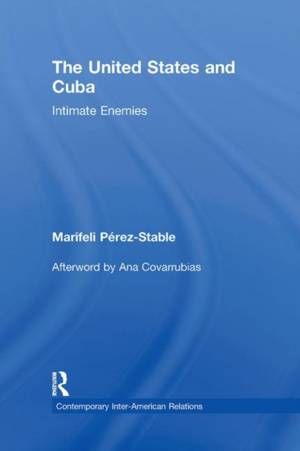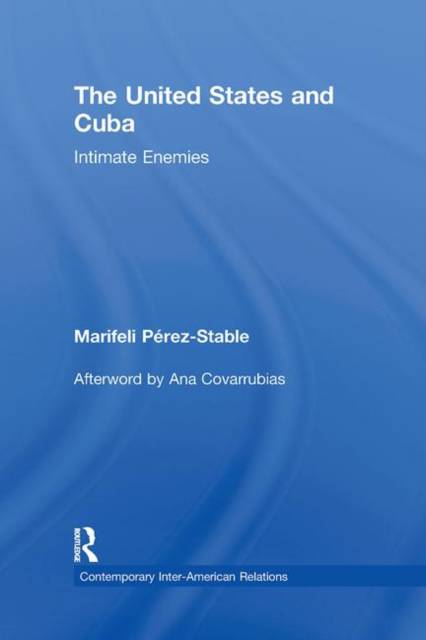
- Retrait gratuit dans votre magasin Club
- 7.000.000 titres dans notre catalogue
- Payer en toute sécurité
- Toujours un magasin près de chez vous
- Retrait gratuit dans votre magasin Club
- 7.000.0000 titres dans notre catalogue
- Payer en toute sécurité
- Toujours un magasin près de chez vous
Description
A great power and a weaker, rival neighbor can eventually have normal relations. Prior to 1959, Cuba and the United States didn't have a mutually beneficial and respectful relationship, and amid the Cold War, Cuba's alliance with the Soviet Union made U.S.-Cuba normality even more elusive. What the United States and Cuba now face is relating to each other as normally as possible, a task made all the more difficult by the shadow of the Cold War. After 1989, regime change returned to the heart of U.S.-Cuba policy, a major obstacle for Washington-Havana dialogue. In turn, Cuban leaders have generally shirked their responsibility to do their part to ease the fifty-year enmity with the United States.
This book systematically covers the background of U.S.-Cuban relations after the Cold War and explores tensions that extend into the twenty-first century. The author explores the future of this strained relationship under Obama's presidency and in a post-Castro Cuba.
Spécifications
Parties prenantes
- Auteur(s) :
- Editeur:
Contenu
- Nombre de pages :
- 224
- Langue:
- Anglais
- Collection :
Caractéristiques
- EAN:
- 9780415804509
- Date de parution :
- 08-12-10
- Format:
- Livre relié
- Format numérique:
- Genaaid
- Dimensions :
- 152 mm x 229 mm
- Poids :
- 471 g

Les avis
Nous publions uniquement les avis qui respectent les conditions requises. Consultez nos conditions pour les avis.






